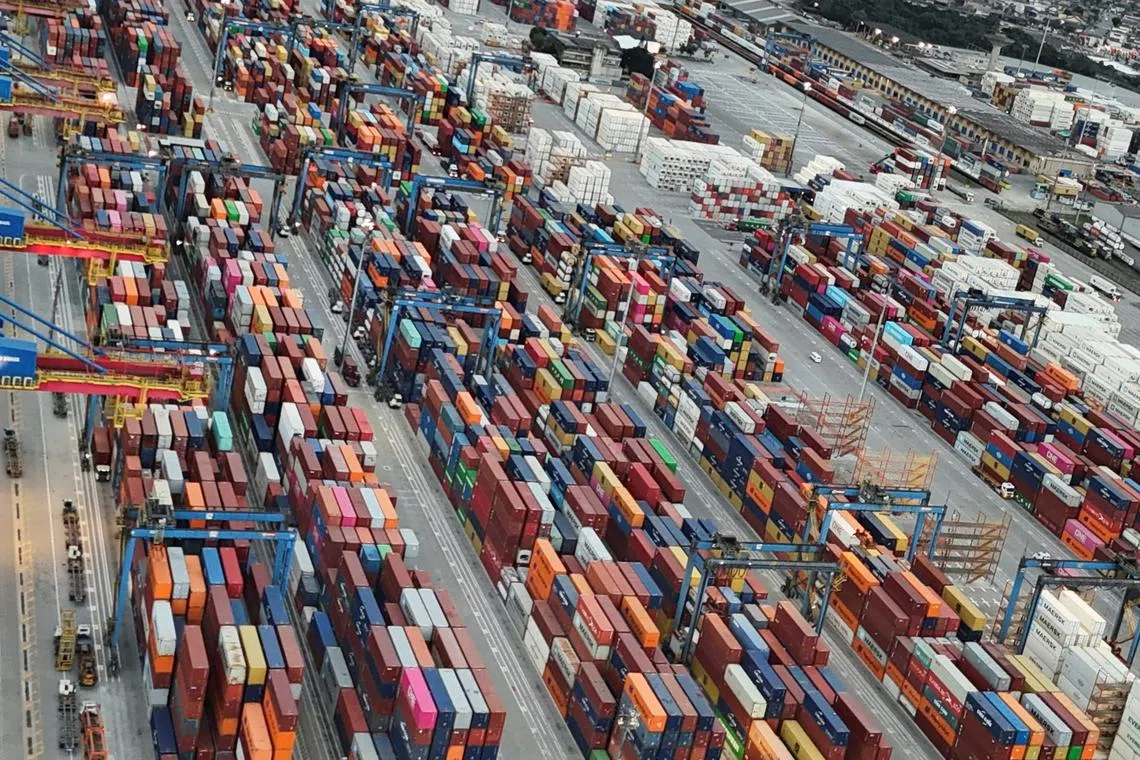Brazil may challenge tariffs in US courts, finance minister says
Sign up now: Get ST's newsletters delivered to your inbox

US President Donald Trump slapped 50 per cent tariffs on several Brazilian goods in August.
PHOTO: REUTERS
BRASILIA – Brazil Finance Minister Fernando Haddad said on Aug 27 that the South American country may challenge in US courts the steep tariffs imposed by the Trump administration on US imports of Brazilian goods.
“We will go to court if needed,” Mr Haddad told local news outlet UOL, adding that Brazil would not engage in lobbying efforts.
US President Donald Trump slapped 50 per cent tariffs on several Brazilian goods
The US also hit Brazilian Supreme Court Justice Alexandre Moraes, who is overseeing Bolsonaro's trial, with financial sanctions.
Brazil has expressed “indignation” at the tariffs, noting that it has run persistent trade deficits with the United States, and has called the sanctions on Judge Moraes an interference in Brazil’s justice system.
The office of Brazil’s Solicitor-General later said that it has hired US firm Arnold & Porter Kaye Scholer to act as legal defence for the Brazilian state on the sanctions.
It said the scope of actions for the law firm includes the defence against tariffs and financial restrictions targeting Brazil and its public officials.
The action strategies should be defined in the coming days, it said.
Mr Haddad, in his remarks, noted that world leaders feel insecure about the US, uncertain about what the future may hold.
He also said that the US dollar remains a reserve currency and will continue to be for many years, unless Washington “keeps making mistakes”.
Mr Haddad cautioned that “weaponising” the dollar will undermine its role, adding that countries cannot be prevented from conducting bilateral trade in local currencies if that lowers transaction costs for them. REUTERS


